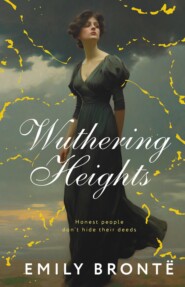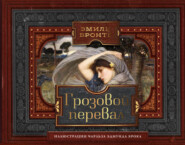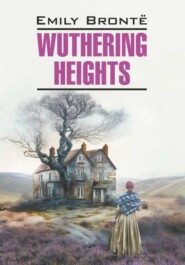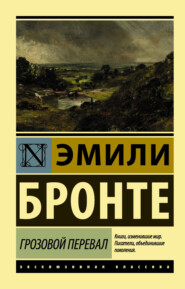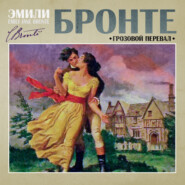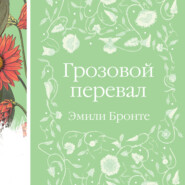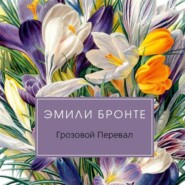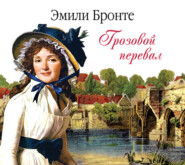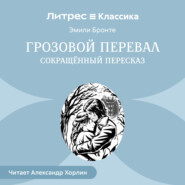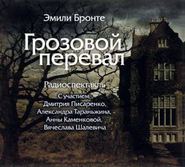По всем вопросам обращайтесь на: info@litportal.ru
(©) 2003-2024.
✖
Poems by Currer, Ellis, and Acton Bell
Настройки чтения
Размер шрифта
Высота строк
Поля
The whisper of its fall:
"An universal influence,
From thine own influence free;
A principle of life – intense —
Lost to mortality.
"Thus truly, when that breast is cold,
Thy prisoned soul shall rise;
The dungeon mingle with the mould —
The captive with the skies.
Nature's deep being, thine shall hold,
Her spirit all thy spirit fold,
Her breath absorb thy sighs.
Mortal! though soon life's tale is told;
Who once lives, never dies!"
LOVE AND FRIENDSHIP
Love is like the wild rose-briar;
Friendship like the holly-tree.
The holly is dark when the rose-briar blooms,
But which will bloom most constantly?
The wild rose-briar is sweet in spring,
Its summer blossoms scent the air;
Yet wait till winter comes again,
And who will call the wild-briar fair?
Then, scorn the silly rose-wreath now,
And deck thee with the holly's sheen,
That, when December blights thy brow,
He still may leave thy garland green.
THE ELDER'S REBUKE
"Listen! When your hair, like mine,
Takes a tint of silver gray;
When your eyes, with dimmer shine,
Watch life's bubbles float away:
When you, young man, have borne like me
The weary weight of sixty-three,
Then shall penance sore be paid
For those hours so wildly squandered;
And the words that now fall dead
On your ear, be deeply pondered —
Pondered and approved at last:
But their virtue will be past!
"Glorious is the prize of Duty,
Though she be 'a serious power';
Treacherous all the lures of Beauty,
Thorny bud and poisonous flower!
"Mirth is but a mad beguiling
Of the golden-gifted time;
Love – a demon-meteor, wiling
Heedless feet to gulfs of crime.
"Those who follow earthly pleasure,
Heavenly knowledge will not lead;
Wisdom hides from them her treasure,
Virtue bids them evil-speed!
"Vainly may their hearts repenting.
Seek for aid in future years;
Wisdom, scorned, knows no relenting;
Virtue is not won by fears."
Thus spake the ice-blooded elder gray;
The young man scoffed as he turned away,
Turned to the call of a sweet lute's measure,
Waked by the lightsome touch of pleasure:
Had he ne'er met a gentler teacher,
Woe had been wrought by that pitiless preacher.
THE WANDERER FROM THE FOLD
How few, of all the hearts that loved,
Are grieving for thee now;
And why should mine to-night be moved
With such a sense of woe?
Too often thus, when left alone,
Where none my thoughts can see,
Comes back a word, a passing tone
From thy strange history.
Sometimes I seem to see thee rise,
A glorious child again;
All virtues beaming from thine eyes
That ever honoured men:
Courage and truth, a generous breast
Where sinless sunshine lay:
A being whose very presence blest
Like gladsome summer-day.
O, fairly spread thy early sail,
"An universal influence,
From thine own influence free;
A principle of life – intense —
Lost to mortality.
"Thus truly, when that breast is cold,
Thy prisoned soul shall rise;
The dungeon mingle with the mould —
The captive with the skies.
Nature's deep being, thine shall hold,
Her spirit all thy spirit fold,
Her breath absorb thy sighs.
Mortal! though soon life's tale is told;
Who once lives, never dies!"
LOVE AND FRIENDSHIP
Love is like the wild rose-briar;
Friendship like the holly-tree.
The holly is dark when the rose-briar blooms,
But which will bloom most constantly?
The wild rose-briar is sweet in spring,
Its summer blossoms scent the air;
Yet wait till winter comes again,
And who will call the wild-briar fair?
Then, scorn the silly rose-wreath now,
And deck thee with the holly's sheen,
That, when December blights thy brow,
He still may leave thy garland green.
THE ELDER'S REBUKE
"Listen! When your hair, like mine,
Takes a tint of silver gray;
When your eyes, with dimmer shine,
Watch life's bubbles float away:
When you, young man, have borne like me
The weary weight of sixty-three,
Then shall penance sore be paid
For those hours so wildly squandered;
And the words that now fall dead
On your ear, be deeply pondered —
Pondered and approved at last:
But their virtue will be past!
"Glorious is the prize of Duty,
Though she be 'a serious power';
Treacherous all the lures of Beauty,
Thorny bud and poisonous flower!
"Mirth is but a mad beguiling
Of the golden-gifted time;
Love – a demon-meteor, wiling
Heedless feet to gulfs of crime.
"Those who follow earthly pleasure,
Heavenly knowledge will not lead;
Wisdom hides from them her treasure,
Virtue bids them evil-speed!
"Vainly may their hearts repenting.
Seek for aid in future years;
Wisdom, scorned, knows no relenting;
Virtue is not won by fears."
Thus spake the ice-blooded elder gray;
The young man scoffed as he turned away,
Turned to the call of a sweet lute's measure,
Waked by the lightsome touch of pleasure:
Had he ne'er met a gentler teacher,
Woe had been wrought by that pitiless preacher.
THE WANDERER FROM THE FOLD
How few, of all the hearts that loved,
Are grieving for thee now;
And why should mine to-night be moved
With such a sense of woe?
Too often thus, when left alone,
Where none my thoughts can see,
Comes back a word, a passing tone
From thy strange history.
Sometimes I seem to see thee rise,
A glorious child again;
All virtues beaming from thine eyes
That ever honoured men:
Courage and truth, a generous breast
Where sinless sunshine lay:
A being whose very presence blest
Like gladsome summer-day.
O, fairly spread thy early sail,







